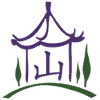Asthma is one of the most debilitating issues common to both children and adults. The feeling of suffocation during an acute asthma attack is frightening to all involved, quickly motivating all in attendance to implement any and all strategies to prevent a future occurrence. Rendering the body more resilient as a means of prevention, holistic medicine has much to offer.
Whether a patient is concerned about minor shortness of breath or has been diagnosed with COPD, I always ask one key question from the theory of traditional Chinese medicine that helps to reveal the level of the problem. The question: is it more difficult to breath in, or breath out? Difficulty breathing out is considered a Lung pattern in Chinese medicine while difficulty breathing in, a Kidney pattern.
In basic physiology, breathing occurs as an orchestration primarily of the diaphragm with the secondary muscles of respiration – the scalene and intercostal muscles. Traditional Chinese medical theory posits that a weakness of these muscles surrounding the lungs (as well as damage to the lung organ itself) accounts for a “Lung type” of breathing problems. In these cases, the ability to exhale and empty one’s lungs in order to get a subsequent deep breath in, poses a significant challenge.
The Kidney pattern (difficulty inhaling) sounds poetic and fanciful – we talk about the Kidneys being unable to grasp the air – but I believe the architects of traditional Chinese medicine were referencing, in their insightful wisdom, the complex workings of the steroid hormones centuries before their discovery in the field of biochemistry.
Your steroid hormones are released from the outer portions of triangular-shaped glands, the adrenals, that sit on top of the kidneys like a little hat on a kidney bean. Although they are functionally a different organ, structurally, they are a part of the kidneys. The hormones they release, such as cortisol, regulate many functions of the body and a cortisol imbalance, whether too high or too low, can have dire consequences on the health of an individual.
The pharmaceutical versions of these hormones are the main category of drugs used in the treatment of chronic breathing problems. Oral or inhaled steroids are acting like an external source of adrenal hormones, regulating function on a regular or as needed basis.
Here lies the genius of the ancient Chinese. They recognized the imbalance in Kidney function (adrenals) as underlying one type of impaired breathing. These cases are diagnosed, in part, with a significant difficulty in inhaling. For treatment, combinations of herbal medicines were prescribed that successfully remedied this pattern, some of which have been found by chemical analysis to directly impact adrenal function.
The salient connection here is that the health of your adrenal glands is directly tied to your lung function, and simply taking steroid drugs will not address the underlying weakness of these glands. Whether an acute or chronic stress, sleep deprivation, or elevated blood sugar – addressing the factors that weaken the adrenal glands and strengthening them with diet and supplements is paramount to successful, long-term healing of breathing issues.
